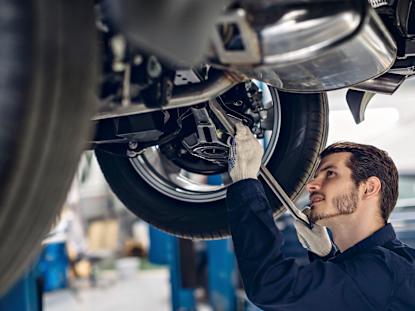Car repairs are an essential aspect of vehicle ownership, and their importance goes beyond just fixing problems when they arise. Regular maintenance and timely repairs are crucial for ensuring that a car operates efficiently, lasts longer, and remains safe on the road. While it can be easy to overlook minor issues or put off repairs, addressing them promptly can save both time and money in the long run, reducing the risk of major breakdowns and costly repairs.

One of the most important reasons to keep up with car repairs is safety. A well-maintained vehicle is far less likely to experience mechanical failures that could result in accidents. For instance, neglected brakes can wear out over time, making it harder to stop quickly in an emergency situation. Similarly, tires that aren’t regularly rotated or replaced can wear unevenly, increasing the chances of a blowout or loss of traction, especially in adverse weather conditions. Other components, such as the suspension system or steering, are essential for maintaining control and stability while driving. Without regular inspections and necessary repairs, these critical systems can deteriorate, putting the driver and passengers at risk.
Regular car repairs also play a significant role in maintaining a car’s performance. Cars rely on various interconnected systems to function smoothly, and when one part starts to fail, it can affect others. For example, a clogged fuel filter can reduce engine efficiency, leading to poor fuel economy and reduced power. A dirty air filter can restrict airflow to the engine, affecting its performance and longevity. By keeping these components in good condition, the car will continue to perform at its best, offering a more comfortable and efficient driving experience.
Timely repairs also help preserve a vehicle’s value. A well-maintained car retains its value much better than one that is poorly cared for. When it comes time to sell or trade in a car, its condition plays a major role in determining its resale price. Buyers are more likely to be attracted to a vehicle with a comprehensive maintenance history and fewer signs of wear and tear. On the other hand, a car that shows signs of neglect, such as rust, broken parts, or visible wear, will be valued much lower, making it harder to sell. Regular car repairs and maintenance, therefore, protect the long-term financial investment in the vehicle.
In addition to safety and performance benefits, keeping up with car repairs can prevent larger and more expensive issues from developing. Small, easily fixed problems—like replacing worn-out belts or addressing a minor oil leak—can quickly escalate into major repairs if left untreated. For example, an overheating engine caused by a failed cooling system can lead to severe engine damage, resulting in a much higher repair cost. By addressing minor repairs early, car owners can avoid these more significant, costly problems and ensure their vehicle remains in good working condition.
Another benefit of regular car repairs is the improvement in fuel efficiency. When the engine, transmission, and other systems are properly maintained, they operate more efficiently, using less fuel to power the vehicle. This not only helps drivers save money on fuel but also reduces the car’s environmental impact. Ensuring that the car’s systems are working at peak efficiency can reduce carbon emissions and make the vehicle more eco-friendly.
In conclusion, timely and regular car repairs are essential for maintaining the safety, performance, and longevity of a vehicle. They help prevent dangerous breakdowns, ensure that the car continues to run smoothly, preserve its value, and save money in the long run. By prioritizing regular maintenance and addressing issues as they arise, car owners can enjoy a safer and more reliable driving experience while protecting their financial investment. Ignoring repairs may seem like a cost-saving strategy, but it can lead to much higher costs and risks down the road.
